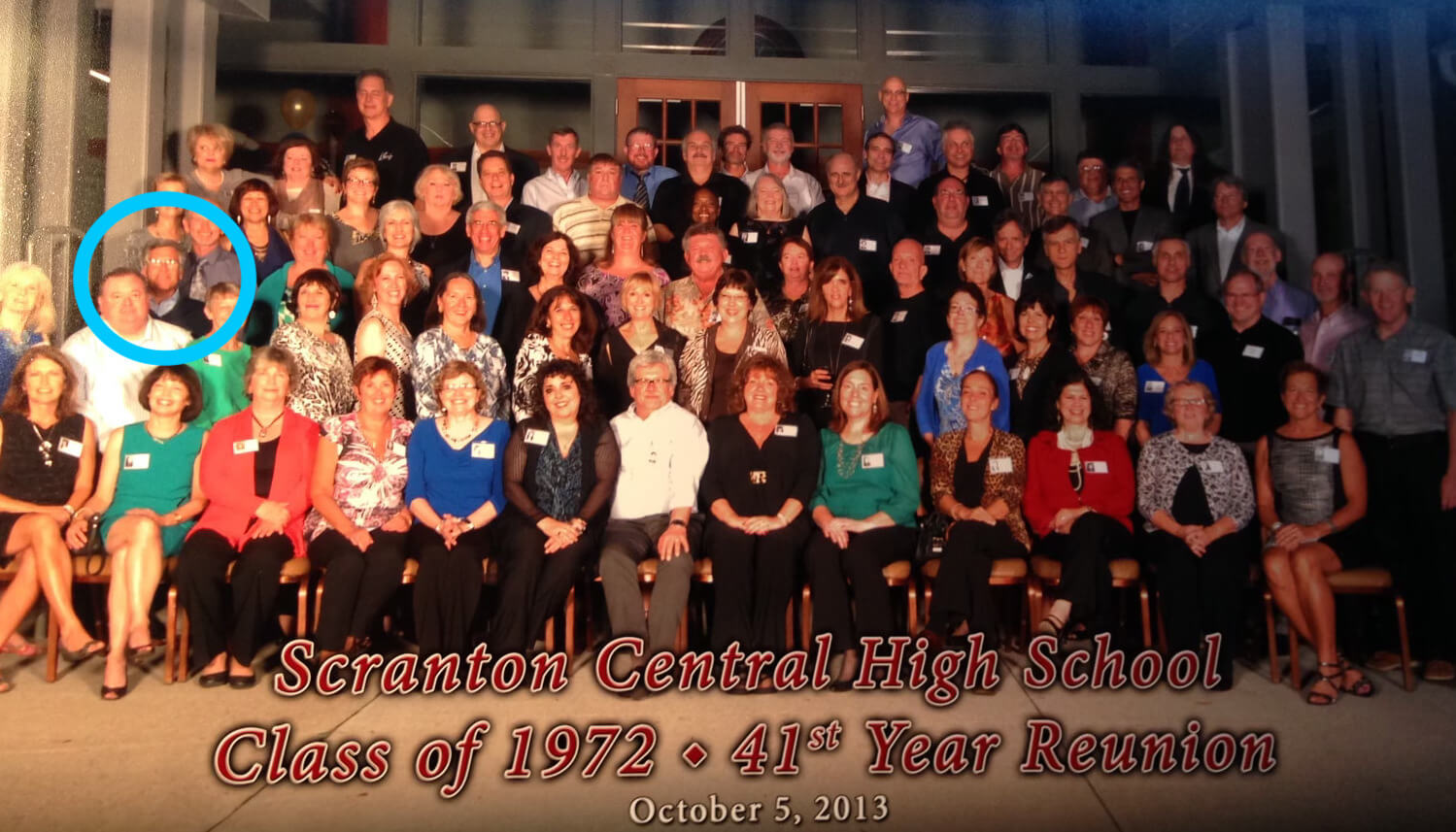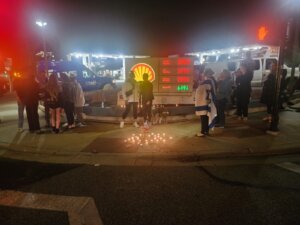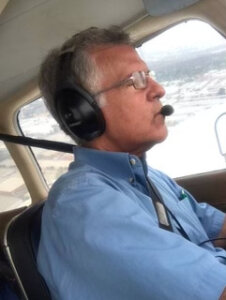After altercation at Israel protest led to his death, lifelong friends grieve ‘kind, gentle’ Paul Kessler
Paul Kessler knew how to dress and how to fly a plane. The Jewish friends he grew up with in Scranton are reeling from his death

Graphic by Angelie Zaslavsky
Far from Thousand Oaks, California, where an altercation with a pro-Palestinian protester cost Paul Kessler his life, a tight-knit Jewish community in Scranton, Pennsylvania, mourned him. His childhood friends remembered him as much for his empathy and sharp dress as his political fervor.
Kessler, 69, a husband and father, died early Monday from an injury he sustained while counter-protesting the Nov. 7 demonstration in Thousand Oaks. Authorities are investigating the case as a homicide and have identified a suspect, but have not pressed charges.
News of Kessler’s death, which heightened fears of antisemitism that have been rising steadily in the Jewish world since Hamas attacked Israel on Oct. 7, has reverberated more personally among his longtime friends from Scranton’s Hill Section, a neighborhood that was once home to a robust Jewish community.
People who half a century ago or more played stickball or flashlight tag with him in alleyways, or went with him to Scranton Hebrew Day School, have been reconnecting this week to share their memories of Kessler.
Many are trying to reconcile memories of the gentle, warm-hearted man they knew with stories of a confrontation that authorities say turned violent.
“He was a very, very staunch supporter of Israel,” said Bruce Slawitsky, whose friendship with Kessler dated back to their days at Scranton Central High School. “Having said that, he was just not the kind of guy that was confrontational or aggressive. Those are just not my memories at all. It’s just the guy who’s just a really good guy, and sensitive to what he saw as injustices in the world.”

‘The Candy Man’
Nicknamed “Pinky” — short for the Hebrew name Pinchas, some believed, though he did not love the moniker — Kessler was one of the more diminutive boys in his class at Scranton Central High School, and among its most popular.
In a Jewish friend group dominated by long-haired hippie-types, Kessler, with perfectly combed jet-black hair, was always the clean-cut one, friends recalled. His father worked in the garment industry — a major sector in Scranton at the time — and Kessler’s coordinated shirts and slacks never knew wrinkles.
“He was really dressed immaculately,” recalled Alma Shaffer, who had known him since kindergarten at Scranton Hebrew Day School.
Gregarious but grounded, Kessler was vividly remembered for a risk he took as a member of the theater club of the local JCC.
Fred Berg, who was also in the club, recounted Kessler’s stirring solo rendition of “The Candy Man” — a tune from Charlie and the Chocolate Factory, which came out while they were in high school. Kessler had been working with the drama staff in secret, and none of his friends, much less the hundreds of Jewish people in the audience, were prepared for it.
“The lights went down, and the spotlights went on Paul, and he had the place captivated,” Berg said. “He blew the place away. I bet a lot of people would remember that. It was remarkable.”
Many of Kessler’s Scranton friends lost touch with him after high school — he moved across the country to attend California State University, Northridge — only to reconnect with him at Class of 1972 reunions.
When Shaffer saw Kessler for the first time in decades at their 20th high school reunion, she recognized him immediately. “Same smile,” she said.
They stayed in touch after that via Facebook, and Kessler called her after her parents passed away, and after her brother passed away.
“He was a kind, gentle person,” Shaffer said.
‘Passionate about Israel’
Kessler was grieving the devastating loss of his daughter in recent years, something that “tore him up,” Slawitsky said.

According to his LinkedIn page, Kessler was an account manager for a medical device company for most of his career. But he didn’t talk to his friends much about his job. More knew that he had taken up flying in recent years, from his frequent Facebook posts in the cockpit of a single-engine aircraft.
Another thing he liked to post about was politics — usually domestic, from a Democratic, strongly pro-Israel perspective. His social media activity ticked up after former President Trump’s election.
On Facebook as well as LinkedIn, Kessler would jump into political conversations to offer his two cents. In one LinkedIn comment, he referred to Trump as “chump” while touting President Biden’s Middle East policy credentials.
“He was passionate about Israel — protection of Israel, sovereignty of Israel, safety of Israel,” Berg said.
Berg had tried to convince his friend to spend less time on social media in recent years, seeing how upset it made him, and knowing that it had cost him at least one friendship. But Kessler felt the fight was important.
On Sunday afternoon, he took that fight — and an Israeli flag — to join a small pro-Israel counter-protest on the corner of a major thoroughfare in Thousand Oaks. There, in the course of an altercation whose details remain unclear, he fell backward and hit his head on the pavement, fracturing his skull and causing a brain hemorrhage.
He died Monday at 1:10 a.m. Kessler is survived by his wife Cheryl, his son Jordan, and sister Lynn. They could not be reached for comment.
“We’re all blown away,” Berg said. “I’m getting a big lump in my throat every time I see one of those news articles. We went swimming together. We played ball together. We chased girls together. We did things together.”






















